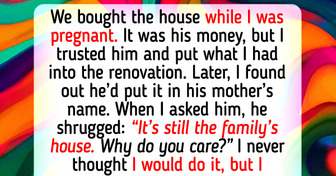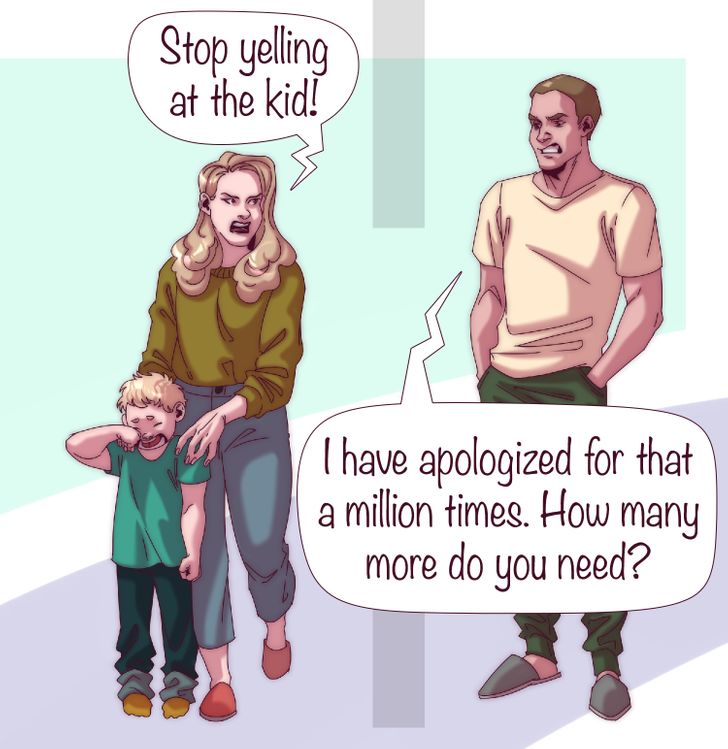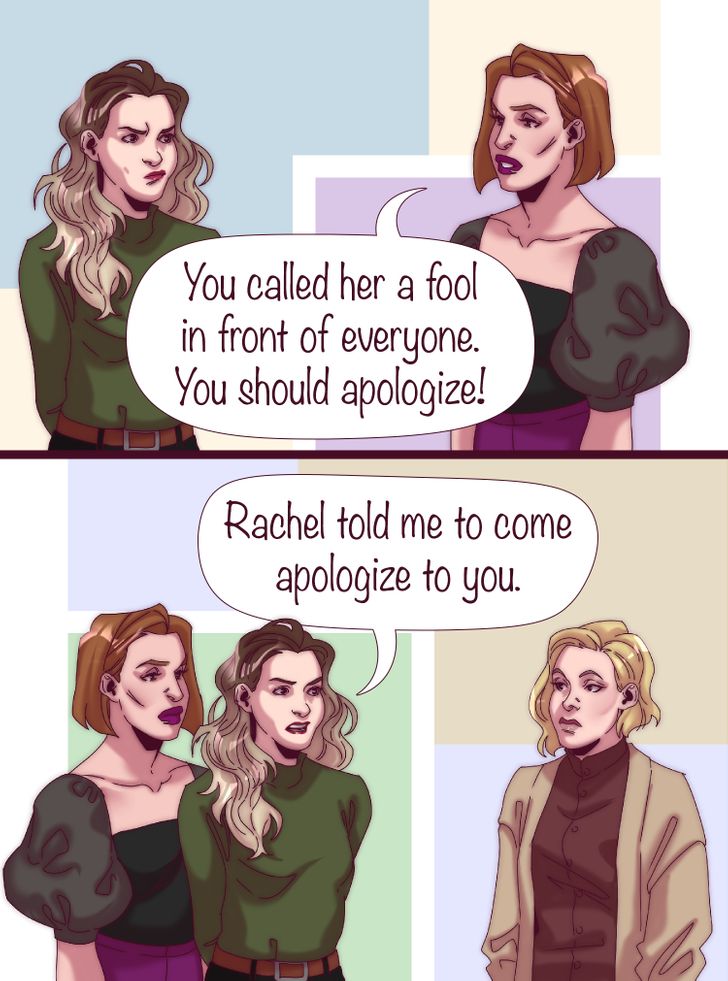True, he's accessing her phone without her permission.
12 Examples of When Someone Is Just Fooling You Instead of Apologizing
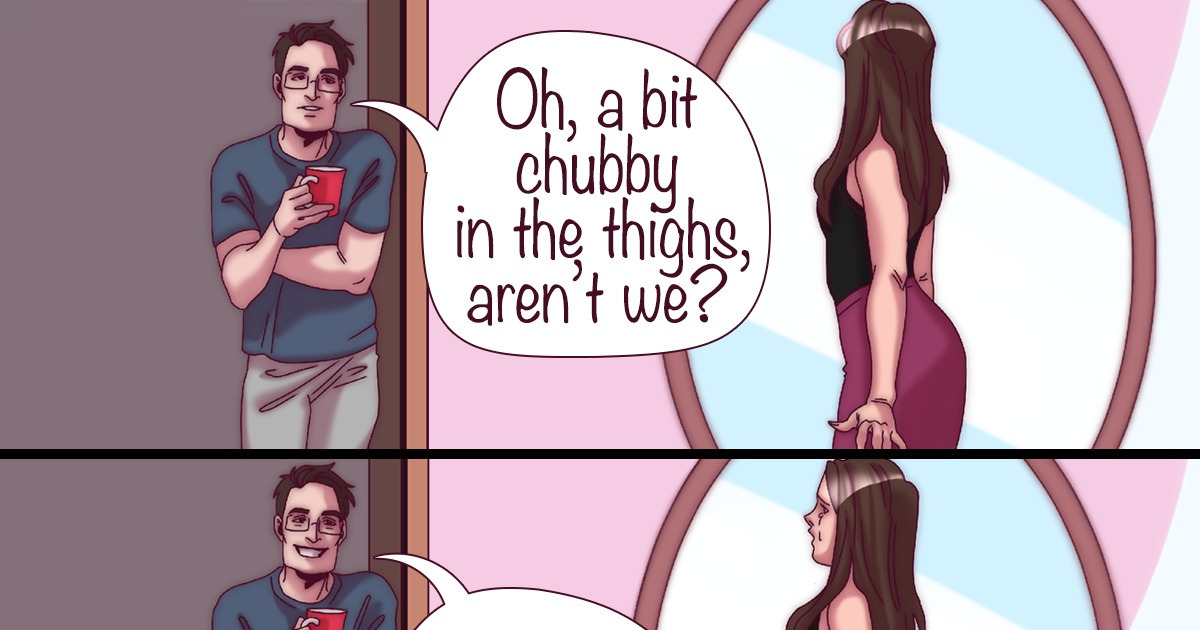
We all have to apologize and accept apologies in awkward situations from time to time. However, sometimes apologies aren’t as sincere as we tend to think they are. Saying sorry and not really meaning it is the same as lying. And when someone makes the statement, “I’m sorry,” but doesn’t take responsibility for their misdeed, it’s called a “non-apology apology.”
We at Bright Side grew interested in this matter and decided to look at some examples of situations that we regularly encounter in our own lives.
1. “You’re exaggerating everything.”
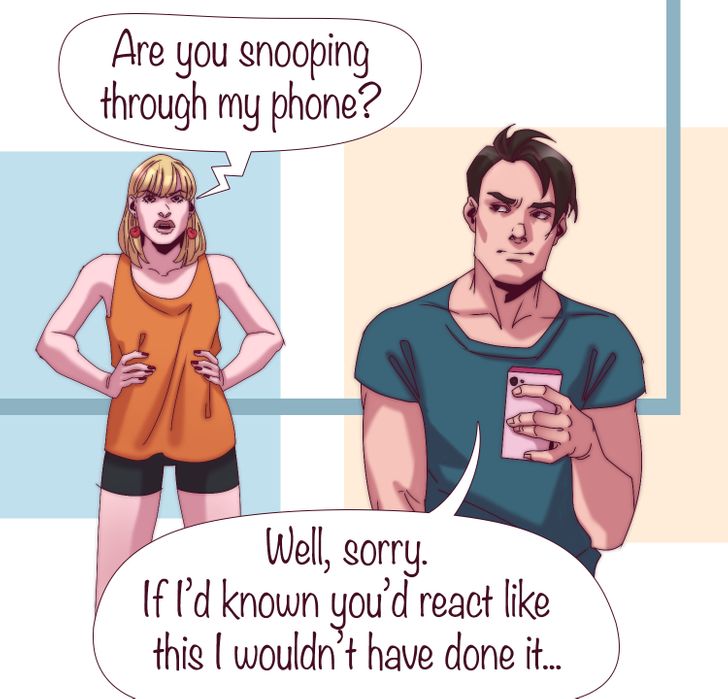
It feels as if this method of apologizing mirrors fault. Formally, a person has apologized but at the same time, it’s obvious that they aren’t feeling regret for what they did. On the contrary, they transfer the guilt onto you for a natural and normal reaction to their actions— they did everything correctly and it’s you who perceived everything the wrong way.
2. “Of course, your deals are more important than mine.”
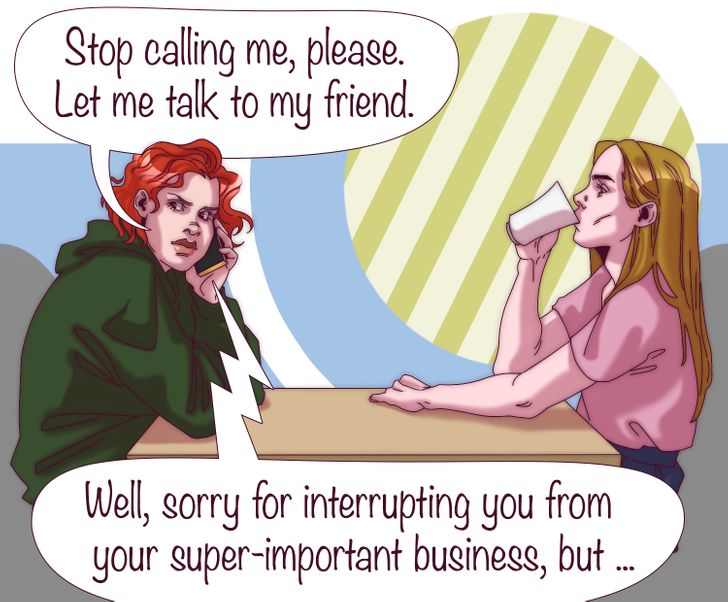
This way of apologizing devaluates the interlocutor’s actions — the phrases that show the person seemingly is in agreement with you is, in fact, irony and is disrespectful toward your needs, and it distorts reality. By doing this, a person manipulates you, making it clear that your deeds, habits, and needs are nothing compared to their desires.
3. “I was just kidding” instantly neutralizes all offenses.
Perhaps each of us has been in a situation when the interlocutor has said something offensive and then added with a smile, “Come on, don’t get offended, I was just kidding!” Such “jokes” bear an attempt to show that offensive behavior is normal and you just take things too close to heart. However, the pain from such words is real and such apologies don’t bring any relief.
4. Formal apology
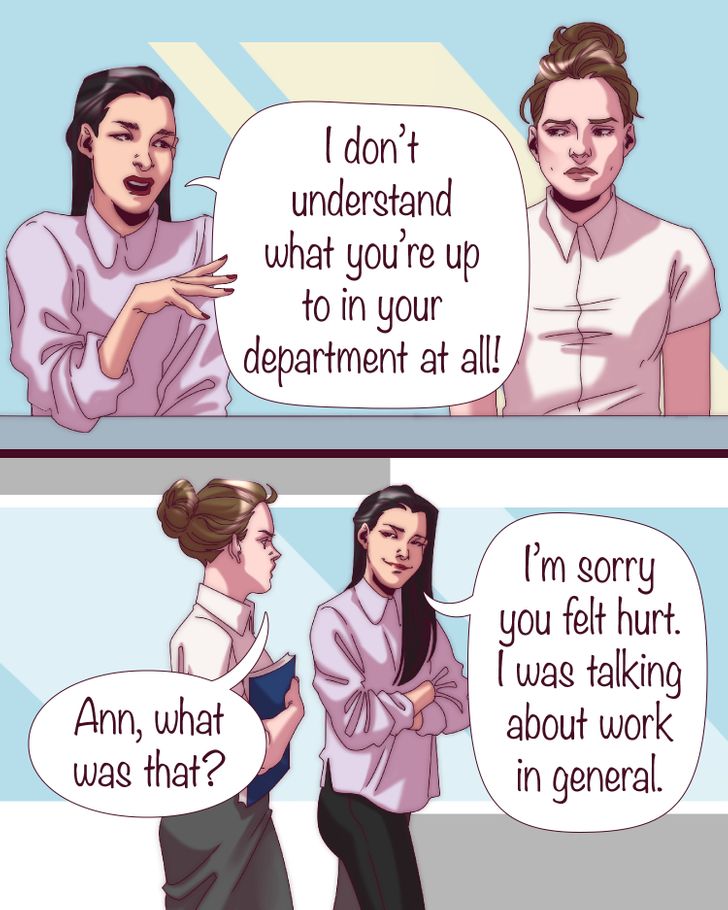
This is a nominal apology not for what happened but for what could have happened. The whole phrase sounds like this: “I’m sorry you felt hurt but if you didn’t feel hurt, I’m not sorry.” This set of words disarms the interlocutor and puts them in an awkward position because formally, the apologies are there, but the unpleasant feeling from all the things that were said still remains.
5. “I always apologize to you.”
There’s really very little (if any) regret in this way of apologizing. In fact, the words “I’ve already apologized a dozen times” neutralizes everything said before. When saying them, the opponent implies that there’s actually nothing to apologize for. It’s called “the deja-vu apology” — a person apologized for their misdeed but the feeling of relief isn’t there.
6. The presence of “probably” in an apology is not a sign of sincerity.
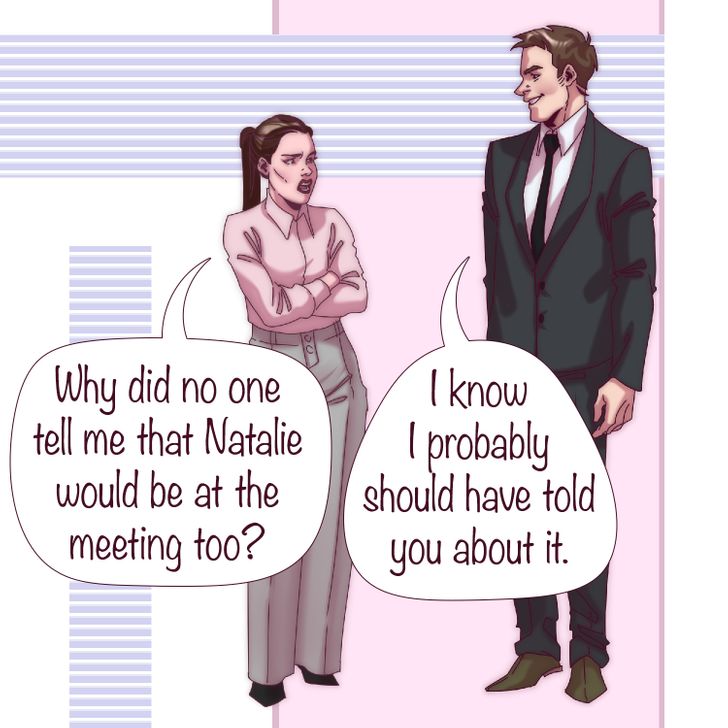
Classic. The guy is expected to remember everyone she has an issue with, who she had an issue with this week and who is back in the friend club.
"I know I probably should have mentioned it but I want thinking about who would be coming and forgot you wernt getting along, I have a lot on my plate I'm dealing with right now." Can also be someone else's +1 in which case he wouldn't know. Like anything, specifics matter. You can't just say "he said the statement, he's automatically wrong"
Words such as “probably,” “maybe,” and “perhaps” all sound unnatural when it comes to apologies. Real regret is when we listen to the emotions of the offended party. When saying something like, “Right, perhaps, I should have...” it makes us understand that the emotions of the offended party weren’t actually that important. Such an apology is more a formality and an attempt to finish the conversation faster.
7. “Don’t get offended. After all, you know...”
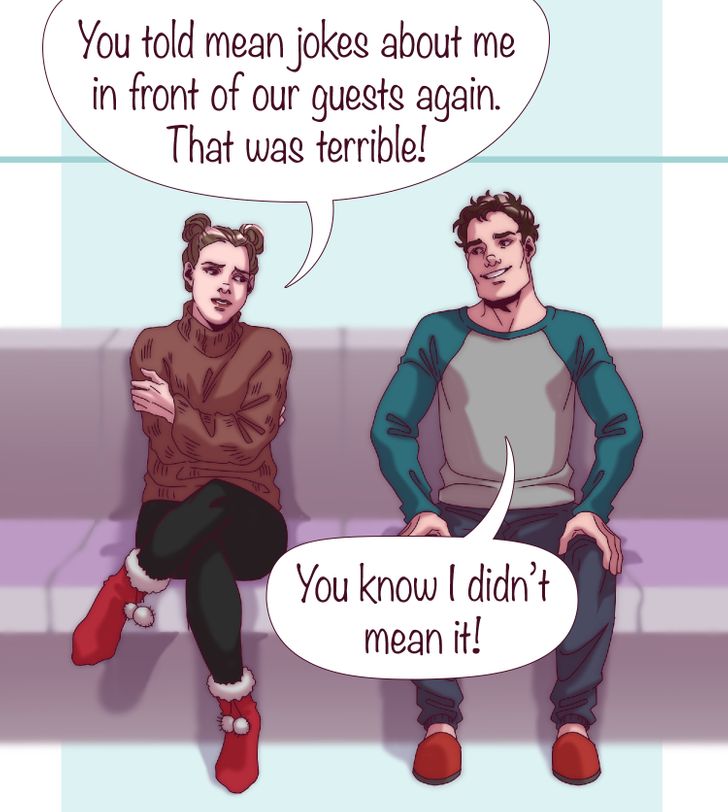
This is just straight up disrespectful and abusive. You can give him exactly one chance. If he keeps doing it he has no respect for you. Immediately break up. Same if roles are reversed.
“We’ve known each other for ages and you’re well aware that I have this kind of sense of humor.” This type of apology looks more like an attempt to get out of an unpleasant situation than anything else. There’s no attempt to understand the interlocutor’s feelings and apologize for the caused discomfort. It’s just a way to dissuade a person from feeling what they feel and stop the unpleasant conversation.
8. “I will apologize provided that...”
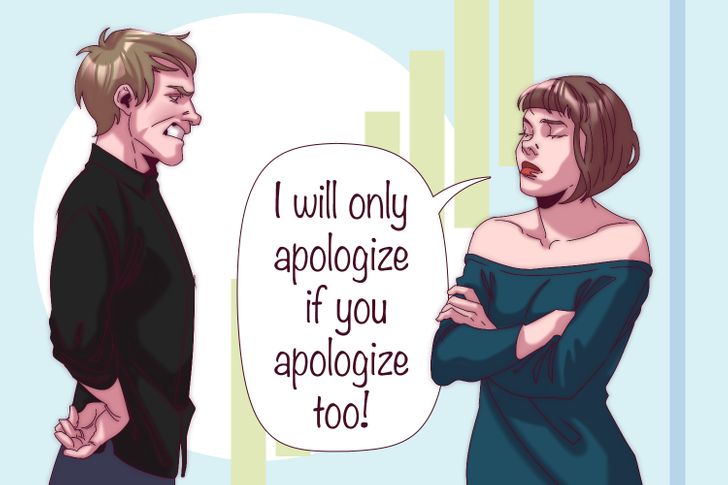
This one is beyond absurd. Two parties are wrong, one is willing to apologize, the other isn't. One offers to apologize if the other does as well, as a mutual agreement that they both messed up.
Author here is suggestion the one that refuses to apologize has done nothing wrong, and being willing to apologize if they do is some kind of trick.
This is the biggest load ever. Clearly the author identifies with the one refusing to apologize.
The difference here can be what they did it didn't do.
Ie. "I can't believe you to my keys"
"Oh yeah? I'm so upset I'm leaving to go crash your car"
"Now that I'm back, I will apologize for crashing your car if you apologize for being angry that I took your keys". That makes sense.
"You slept with my boyfriend!"
"That's only because I saw you looking at my boyfriend while he looked at you! This is your fault! If you apologize I'll apologize"
The phrase isn't an issue whatsoever, the details are what matter.
This way of resolving an issue cannot be considered an apology at all. It looks more like a bargain when the offended party demands the other person pay a certain price to hear apologies from the one who offended them. There’s no pinch of regret here because first, you need to pay for it.
9. Giving an apology because someone told you to.
The notion of saying, “I was told to apologize to you,” looks like a childhood scenario where adults normally teach small kids what and how to say something to settle a conflict. Oftentimes, the little offender isn’t able to understand what guilt is. Kids simply say, “Mom told me that I should apologize,” not feeling a pinch of guilt at all. The same type of apology from an adult costs nothing.
10. “I’m sorry for all the bad things I did to you.”
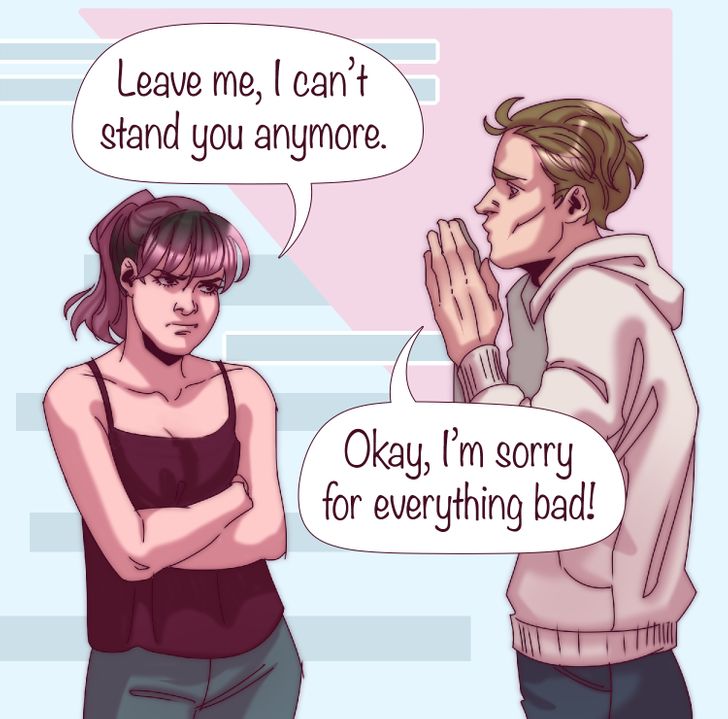
“I’m sorry for everything.” This is a very general apology. The person who offended you doesn’t want to think about what exactly hurt you. They don’t take responsibility for their specific actions, and on the contrary, it’s a perfect way to not take responsibility for anything. By apologizing this way, a person shows that they’re not even understanding what words or actions actually offended you.
11. “Enough already...”
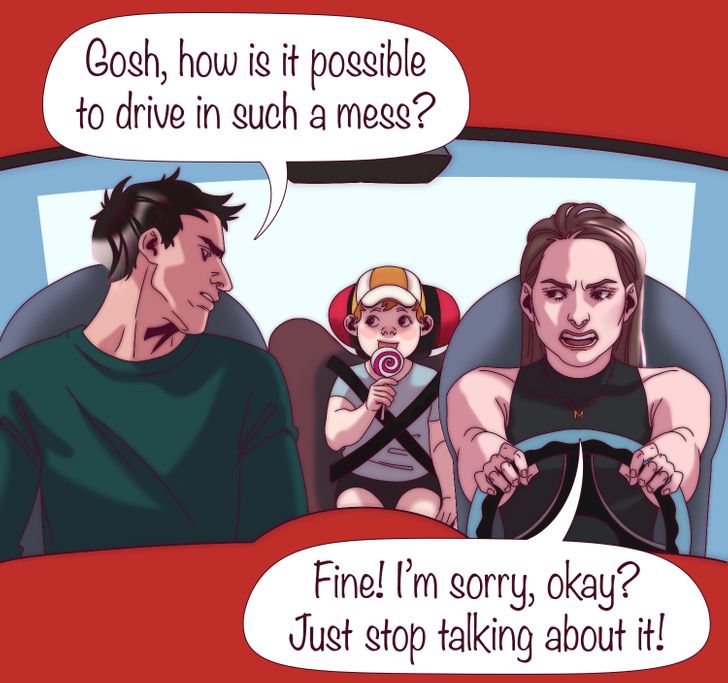
A forced apology for something a person doesn’t feel guilty about can’t bring satisfaction to the offended party. Such a method of apologizing looks more like a wish to stop an unpleasant talk rather than an attempt to settle things. Oftentimes, it’s just a way to protect a person from the attacker.
12. “I regret that...”

An apology with no sincere regrets in it sounds like: “I regret that it hurt you,” or “I’m sorry if it seemed to you that...” It feels as if a person is transferring their guilt onto you. It likely happens when they say something offensive and you felt bad about it. “Whose fault is it that you feel bad? Right, it’s yours. And how dare you be offended by something!”
Have you ever encountered fake apologies?
Comments
Related Reads
15 Examples of Double Standards We’re All Fed Up With
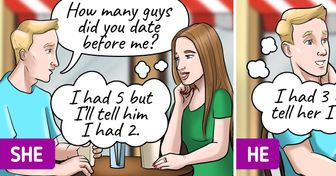
10 Types of Advice That Only Narrow-Minded People Can Give

15 Facts That Sound Fake But We Can Prove They’re True

16 Supermarket Stories That Have an Unexpected Twist
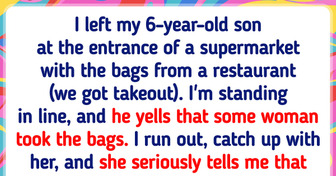
9 Ways Parents Encourage Misbehavior in Their Children
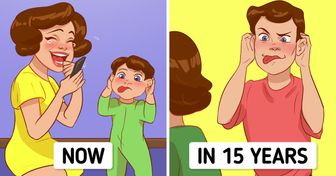
An Artist Draws Honest Illustrations About Her Relationship, and Many Couples Recognize Themselves in Her Work

9 Psychological Tricks You Can Start Using Right Now

My Best Friend Gave Her Baby the Same Name as My Stillborn
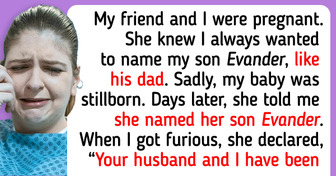
12 Situations That Prove Some Stereotypes About Relationships Actually Make Sense
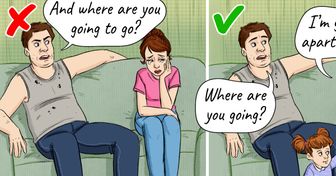
12 Life Twists That Feel Like a Rollercoaster With No Seatbelt

I Refuse to Look Away After What My Stepson Did to My Son — It Destroyed Our Family
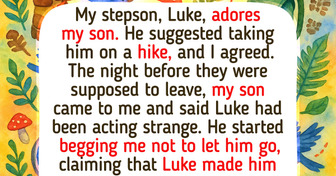
I Found Out My Husband Transferred Our Marital Property to His Mother’s Name—So I Made My Own Move
